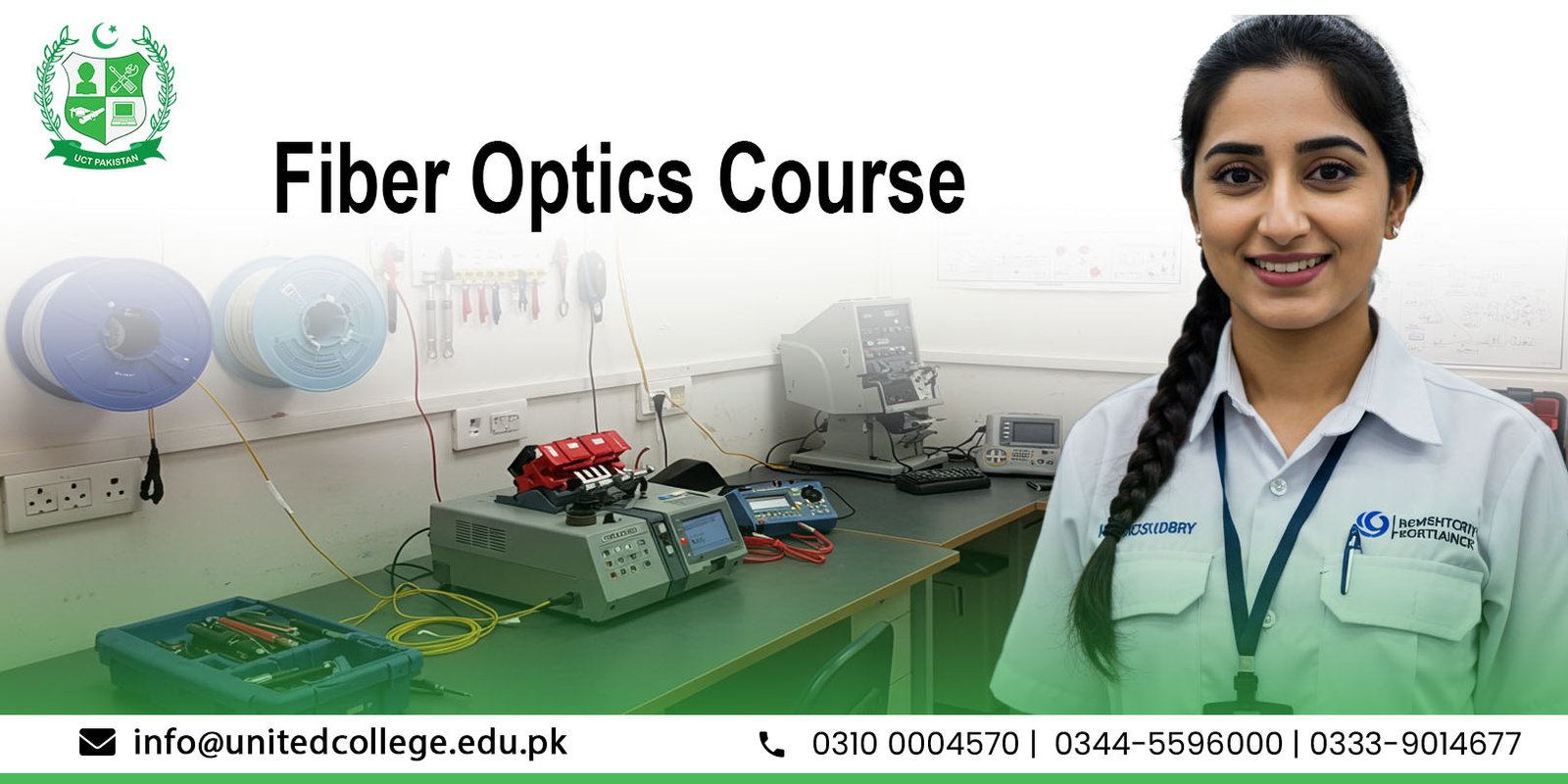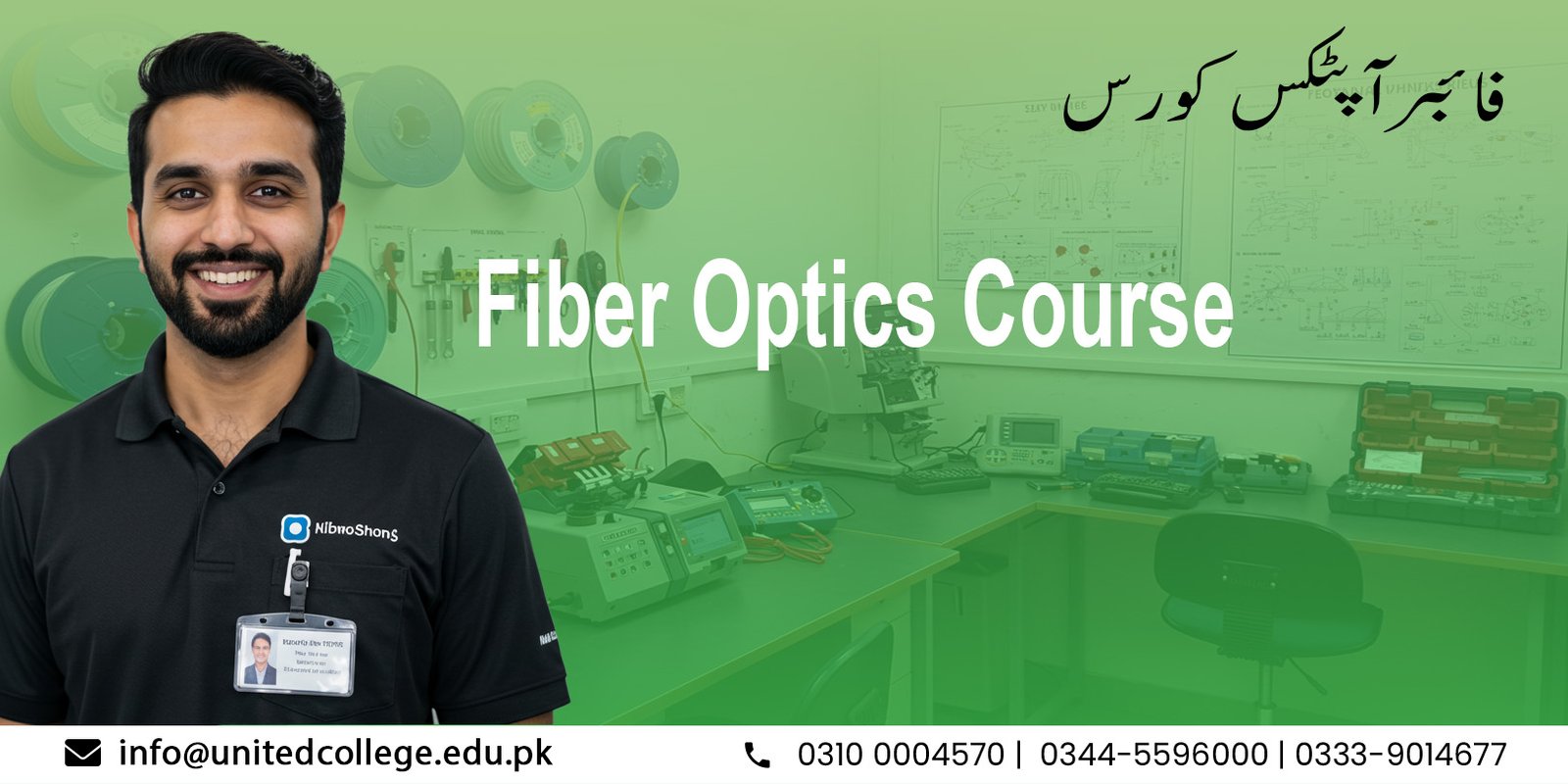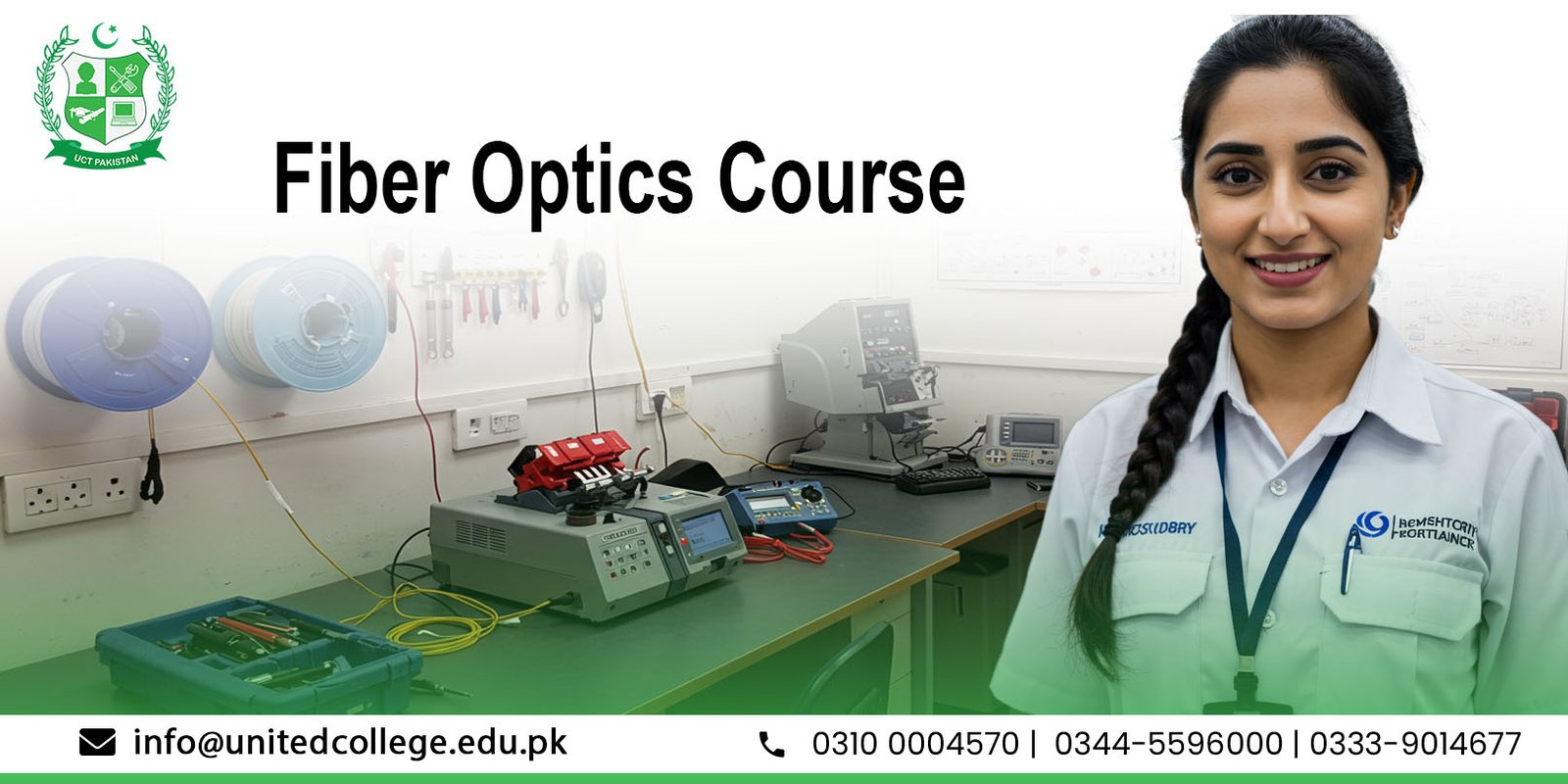

The demand for high-speed internet, telecommunication, and secure data transmission has increased the need for professionals trained in fiber optic systems. Our Fiber Optics Course in Rawalpindi is designed to provide students with practical knowledge of optical communication, splicing techniques, and modern networking systems. This course equips learners with the skills to work in telecom, IT, and networking industries where fiber optic technology is the backbone of communication.
United College of Technology (UCT) offers this program under the guidance of expert instructors with years of field experience. The course combines theory with hands-on practice, ensuring students understand real-world applications. By completing this program, you can secure job opportunities in telecom companies, ISPs, and technical service providers across Pakistan and abroad.
The Fiber Optics Course in Rawalpindi aims to develop technical expertise in:
Students begin by learning the basics of optical communication, including how light signals transmit data over long distances. The course explains the structure of fiber cables, core, cladding, and protective layers. Understanding these fundamentals helps learners grasp how fiber networks support modern telecommunication systems.
One of the most important parts of our training is optical fiber splicing. Students practice fusion and mechanical splicing methods, along with proper cable termination techniques. This hands-on training ensures that they can connect and repair fiber optic cables effectively, a skill highly in demand in the job market.
In this section, students are introduced to the tools required for fiber optic work, including OTDR (Optical Time Domain Reflectometer), fusion splicer, cleaver, and power meters. Learning how to handle and maintain these tools correctly is essential for field technicians and engineers.
Our Fiber Optics Course in Rawalpindi also covers the planning and designing of fiber networks. Students learn how to calculate link budgets, plan routes, and manage network expansions. These skills are essential for individuals seeking to work on large-scale telecommunication projects.
Proper troubleshooting is critical to maintaining fiber networks. Students are trained to identify common issues such as signal loss, breaks, and weak splicing. Using modern testing equipment, learners gain the confidence to resolve technical problems quickly and effectively.
Working with optical fibers requires strict safety precautions. This part of the course focuses on handling sharp fibers, using protective gear, and safely operating splicing equipment. Emphasis on safety ensures students are prepared for fieldwork in professional environments.
Completing the Fiber Optics Course in Rawalpindi opens doors to several career paths, including:
Along with the Fiber Optics Course in Rawalpindi, UCT also offers other professional programs such as networking courses, telecommunication training, and fiber optics diploma programs. These additional options allow students to expand their expertise and improve their career prospects.
United College of Technology’s Fiber Optics Course in Rawalpindi is the right choice for students and professionals who want to build a career in networking and telecommunication. By combining theoretical knowledge with practical skills, this program ensures you are industry-ready and capable of meeting the growing demand for fiber optic specialists.


.jpg)
.jpg)
.jpg)
.jpg)
The duration of the Fiber Optics Course in Rawalpindi at UCT typically ranges from 1 to 3 months, depending on the level of training. Students learn both theory and practical skills such as fiber splicing, testing, and troubleshooting during this period.
Graduates of the Fiber Optics Course in Rawalpindi can work as fiber optic technicians, telecom installers, ISP field engineers, and network maintenance specialists. With the rapid expansion of fiber internet in Pakistan and abroad, skilled professionals are in high demand.
No prior experience is required. The course is designed for beginners as well as professionals from the networking and telecom fields. Students with basic knowledge of IT or electronics may find it easier, but the course starts from the fundamentals.
Yes. United College of Technology provides practical training using tools like OTDR, fusion splicers, and power meters. Students get real-world experience in fiber optics splicing, termination, and troubleshooting, which makes them job-ready.
Yes. UCT’s Fiber Optics Course in Rawalpindi provides certification that is accepted by local and international employers in the telecom and networking industry. Many of our graduates find employment in the Middle East and other regions where fiber optic professionals are in demand.













